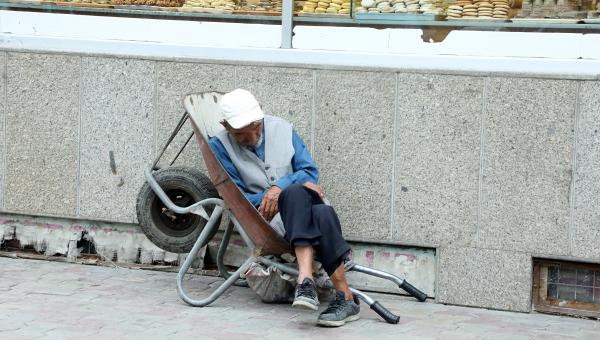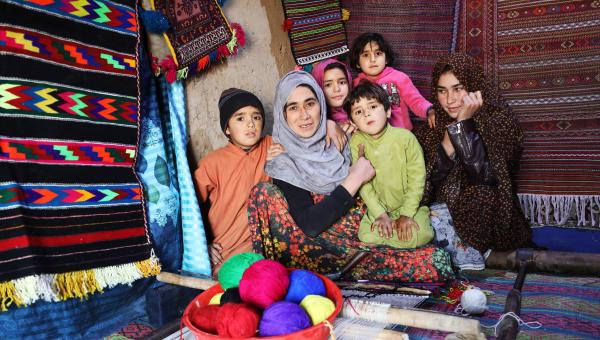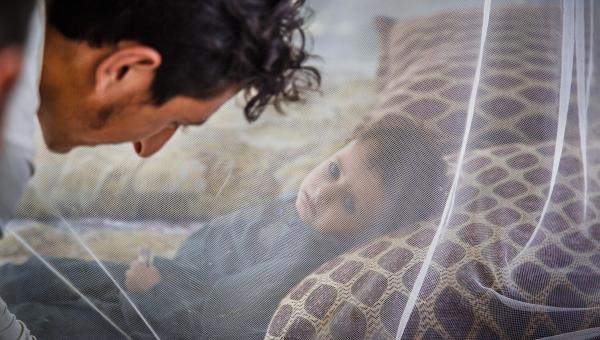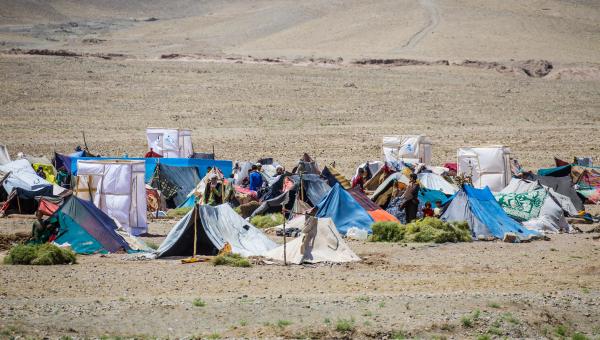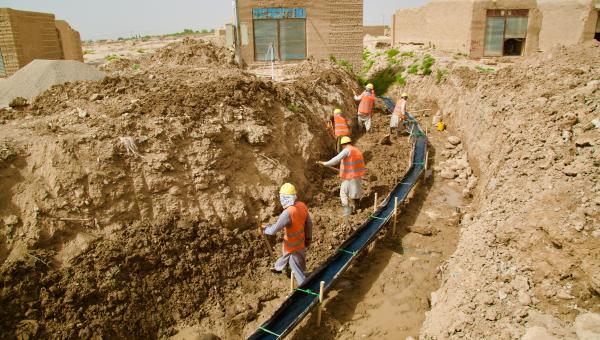Area Based Approach to Development Emergency Initiatives (ABADEI 2.0)
Overview
The Area-Based Approach to Development Emergency Initiatives (ABADEI) Strategy is a tailored response to the ongoing crisis in Afghanistan, as requested by the UN Executive Committee Working Group for Afghanistan.
ABADEI is an area-based integrated programming approach to support basic human needs by combining short-term humanitarian life-saving assistance with safeguarding livelihoods and enhancing community resilience. It aims to address worsening poverty and vulnerability, support community resilience and social cohesion, and rehabilitate of small-scale infrastructure vital for basic human needs.
It emphasizes creating immediate income sources through initiatives like cash-for-work (CfW) and cash-for-market (CfM), small businesses, and livelihood opportunities, with a particular focus on agri-business and regenerative agriculture infrastructure critical for food security.
Sensitive to the chronic and emerging vulnerabilities and marginalization of Afghan women and girls, ABADEI seeks to assist them without worsening their susceptibility to violence and deprivation of opportunities and rights.
ABADEI is grounded in partnerships to maximize synergies and capitalize on existing capacities at the local level. It utilizes the One-UN concept by combining resources, experience and the collective knowledge of UN agencies and development partners. ABADEI complements the Humanitarian Response Plan (HRP) and aims to addresskey concerns such as food insecurity, emergency needs for essential goods and services, and the effects of displacement on IDPs, hosts and refugee returnees through a resilience-building approach.
Area Based Programming (ABP), at the core of the ABADEI Strategy, is a context-sensitive, needs-based targeting approach that aims to preserve human, social, cultural, and institutional capital amidst a multidimensional crisis. It recognizes that while life-saving humanitarian assistance is essential to address urgent needs, it must be simultaneously accompanied by measures to reduce further displacement and the rapid rise of the humanitarian case load. It recognizes the importance of addressing multiple vulnerabilities simultaneously to prevent the socio-economic collapse of the country in a context of severe instability.
The project aims to enhance women’s access to essential services and opportunities for community-based economic activities and skill development. It will strengthen community resilience and social cohesion. The project will support community leaders to include diversity, inclusivity, equity, non-discrimination and equality principles in local activity planning, implementation, dispute resolution, and resource management. The project will also increase the use of gender-disaggregated data and mainstream gender equality and empowerment into design, selection, and monitoring of community interventions.
With gender-specific results and activities, the Project will support women-owned businesses, women's access to health, energy, and vocational training, and provide increased opportunities for women, girls, survivors, and at-risk women to participate actively in alternative livelihoods or income generation activities supported by cash-based interventions.
Objectives
The Project aims to provide UNDP with a focused delivery mechanism in an integrated approach that will address both the current priority needs as well as provide decision-makers with a flexible and agile approach that will respond to new opportunities and unforeseen future externalities and exigencies. It aims to reach all 34 provinces of Afghanistan with an integrated ‘package’ of interventions, bringing economic benefits, strengthening essential services, linking communities with improved transportation infrastructure, involving local leaderships in priority identification, fostering women and girls economic and social empowerment, creating two million permanent jobs; all interventions aims at reducing vulnerability, building stability, social cohesion, strengthening civil society and community resilience.
Major Achievements
- 82,712 individuals (41,356 women) benefitted from improved infrastructure for recovery in crisis or post-crisis settings (disaggregated by sex)
- 06 infrastructures constructed/repaired to support access and delivery of essential services (disaggregated by type of infrastructure - including roads, bridges, schools, health facilities, water supply, waste management centres, emergency shelters, market centres etc.)
- 4101 including 339 women benefitted from jobs and improved livelihoods in crisis or post-crisis settings: Female, Male, Youth, IDPs
- 25,258 number of paid labour days created through Cash for Work
- 2196 including 1605 women-led formal and informal businesses received technical support and/or grants (disaggregated by formal and informal businesses)
- 137,830 including 68,915 women individuals gained access to clean, affordable, and sustainable energy (disaggregated by sex)
- 30 basic facilities powered through renewable energy (disaggregated by type of facility)
- 6358 including 2973 women individuals with better awareness about social cohesion disaggregated by sex
- 07 grievances received through UNDP established community grievance/feedback handling platforms
- 70 community groups supported in recovery planning to revitalize services and resilience
Related Materials
Impact
Relevant Content

 Locations
Locations
